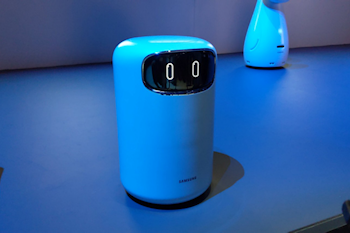Start a business? Are you kidding? With what resources?
With student loan debt exceeding one trillion, wage growth stagnant, and higher than expected underemployment for some college graduates, it would-be reasonable to presume that rates of entrerpreneurship have declined significantly among people 20-35 years old because of debt. Previous generations, Generation X and the Silent Generation, were not saddled with such financial burdens in order to gain employable skills and had a relatively easier time entering the workforce. However, despite the fact that debt is a significant problem for Millennials, there are multiple factors contributing to the state of entrepreneurship in the 20-35 cohort and debt may just be a symptom of the problem.
Millennials, due to structural changes in society and the Great Recession, do not have comparable access to assets that can be used for secured credit to start a business. With postponed careers and higher rates of risk aversion than their peers, many have been either forced to or chosen to avoid developing healthy credit histories that could be used to obtain unsecured credit to pay for business expenses. Also with the gains of the modern computing era accumulating in mature enterprises, the barrier to entry for starting a business are very high and it is difficult to compete effectively without capital. All of this taken together, it would make sense that starting a business may not be an attractive proposition as it was in other circumstances.
Debt alone does not take into consideration the psychological impact of the Great Recession on risk aversion. For some, they witnessed their parents' nest eggs get crushed in the Dot Com Bust and/or the crash after the housing market plunged at the beginning of the Great Recession. Wealth gains since have been concentrated at the top and with low wages compared to rates of inflation, many young people are foregoing contributing to retirement accounts or investing to generate their own wealth. And for many, living with their parents into their early to mid 30s is not a choice rooted in immaturity or laziness but necessity. So no financial instruments such as a 401-k or investment account to draw on and no home to leverage, a prospective entrepreneur would find the task of starting a business daunting. The alternative is to look at businesses that do not require a lot of seed capital to start but also may have higher risk and require skills not readily available in order to generate enough income to pay everyday cost of living expenses.
If you are living paycheck to paycheck, finding the resources to maintain an established limited liability business is next to impossible. Self employment without such protections will leave the individual in a situation where an unlimited liability scenario could bankrupt them personally. This certainly does not indicate that this individual would have the capacity to compete with established businesses unless they were able to compete in technical areas such as programming or an industry that requires specific self taught or apprenticeship rooted skills. This gap in capacity and capability is apparent when looking at small business births and deaths. More small businesses are dying in the first 3-5 years than are being created. Traditionally, small businesses are where many jobs are created because they are operating in less mature life stages of business where more hiring occurs. Mature, established businesses tend to experience more steady labor pools and are not as big a contributor to employment growth as small businesses. This is why it is critical that entrepreneurship occurs for the economy as a whole.
There are some critics who will postulate that Millennials do not have the same levels of ambition and aptitude for traditional business and that is why they do not pursue it. Plus, they are entitled and anxious over nothing and do not possess the temperament or tenacity to overcome obstacles and achieve business success. This is just simply generalization of an entire generation by a condescending older generation. Generation X and the Baby Boomers also experienced stereotypes over their sensitivity, angst, and hair cuts. It is possible though that instead of war or entitlement, Millennials are actually anxious over unprecedented indebtedness and the high uncertainty that they can achieve success comparable to their parents. Starting a business is incrediblly difficult to do so and thrive in today's business environment against enterprises that are increasingly global and steeped in economy of scale advantages. Wages are on a plateau and falling when factoring in inflation, and competition from low wage visa holders and the inability to negotiate effectively for compensation is stifling the ability of young people to gain wealth and security. As Millennials deal with the ramifications of these financial and personal metrics, there are also economic headwinds such as artificial intelligence, robotics, and tech outsourcing affecting their current and future employment prospects. There is indeed much for this generation to consider.







